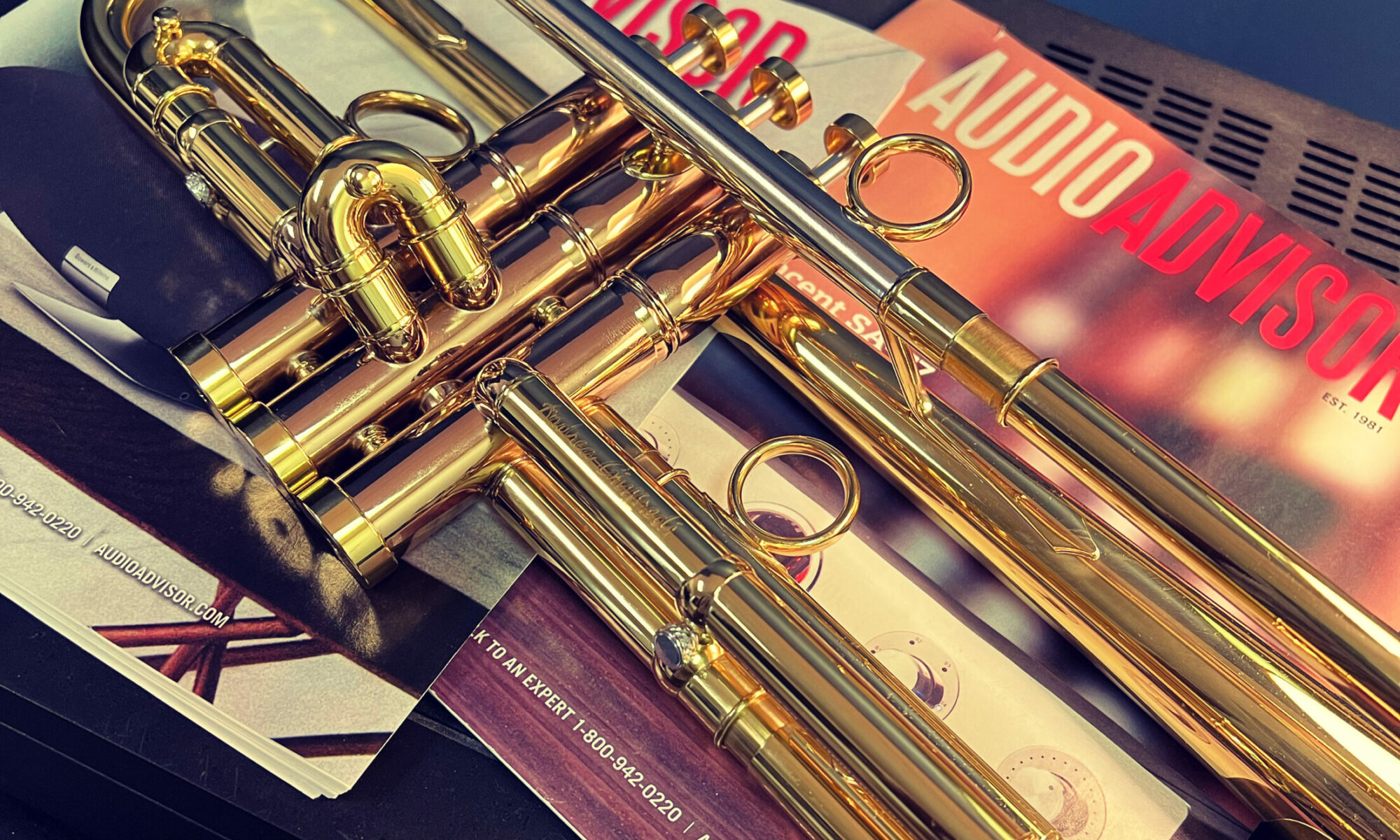I am way overdue for a new topic. It suddenly occurred to me (as I sit at my computer at 1:00am) that I am buzzing my mouthpiece. I started to wonder why I was doing it and realized it would be a good topic, so here goes.
There seems to be a love/hate relationship with trumpet players regarding mouthpiece buzzing. I know some people who absolutely swear by it, insisting that it is paramount in their success with the trumpet. Others have told me that it couldn’t be a better waste of time. While I think I can see why some feel it’s a waste of time, I find myself in the “it’s useful” camp. It certainly helps me in a few key areas:
1. Focusing the “buzz” for maximum efficiency and immediacy.
I find that buzzing a steady pitch very softly with a breath attack brings my lips together in the optimal playing position. I find if I am doing this on a somewhat regular basis (a few minutes a few times a week) I can start (or stop) notes with virtually no effort. For me, the less effort required to start a note, the less effort required to sustain the note (better efficiency = better endurance). Immediacy increases greatly as well, meaning easily starting and stopping notes at a lower dynamic. I suppose that efficiency and immediacy could be one in the same, or you could call this technique “finding balance” on the most fundamental level. It depends on how you look at it.
2. Continuity of air stream.
Mouthpiece buzzing has helped me with my air usage as well. Being able to hold a steady pitch (on the mouthpiece) has more to do with air than anything else. I also listen and feel for disturbances in the air stream when doing slow interval slurs. If the balance is right there will be no pitch, volume, or tone fluctuation while performing a slur. Exaggerated crescendo/decrescendo exercises on long tones expose air issues too.
3. Quality of sound.
Purity and richness of sound can be affected by mouthpiece buzzing. After doing some soft buzzing (as discussed under #1) my sound has a greater presence of overtones. Move overtones gives your sound more color and projection, adding to playing efficiency. Listening to the actual sound of the buzz can help too. I believe the more buzz sound (or tone) and the less “air” sound a person has, the purer the trumpet sound will be. The “air” sound means that some part of the embouchure is not buzzing efficiently (or not at all). This contributes to the distortion (or “junk” as I call it) in the center of a trumpet sound. Listen to the sound of other players. Chances are good that you will hear it to some degree or another. One of the greatest examples of a pure sound is Bud Herseth. Find a video clip of him buzzing his mouthpiece. It’s all buzz and no air. I don’t know if Bud practices mouthpiece buzzing, but I certainly think there’s a relationship of having a pure mouthpiece sound and a pure trumpet sound. If practicing mouthpiece buzzing gives you a better buzz………………….
